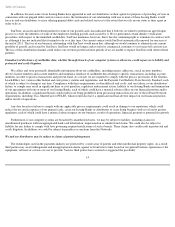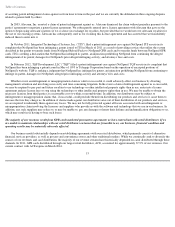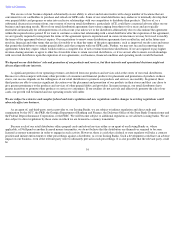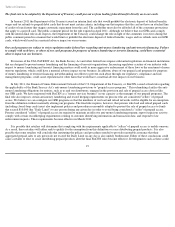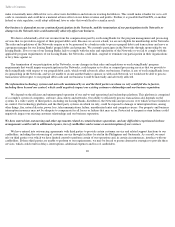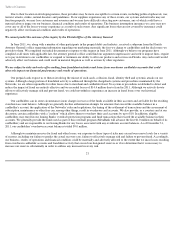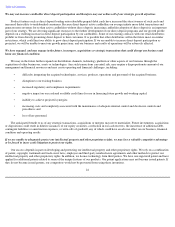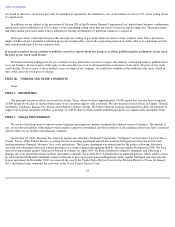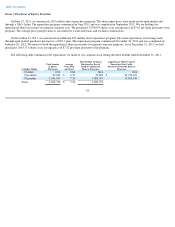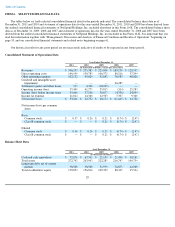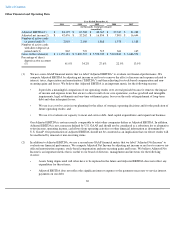NetSpend 2011 Annual Report Download - page 27
Download and view the complete annual report
Please find page 27 of the 2011 NetSpend annual report below. You can navigate through the pages in the report by either clicking on the pages listed below, or by using the keyword search tool below to find specific information within the annual report.
Table of Contents
Existing laws afford only limited protection for our intellectual property rights. Intellectual property rights or registrations granted to us
may provide an inadequate competitive advantage to us or be too narrow to protect our products and services. The protections outlined above
may not be sufficient to prevent unauthorized use, misappropriation or disclosure of our intellectual property or technology and may not
prevent our competitors from copying, infringing or misappropriating our products and services. It is possible that others will independently
develop, design around or otherwise acquire equivalent or superior technology or intellectual property rights. If we are unable to adequately
protect our intellectual property rights, our business and growth prospects could be materially and adversely affected.
Risks Related to Ownership of Our Common Stock
Our stock price could decline due to the large number of outstanding shares of our common stock eligible for future sale.
As of December 31, 2011, we had 84,733,848 shares of common stock outstanding (assuming the conversion into common stock of
199,995 shares of non-voting Series A Convertible Preferred Stock ("Series A Stock") by JLL Fund IV and 500,005 shares of Series A Stock
held by JLL Fund V). 55,497,289 of these shares were owned by Oak Investment Partners X, LP (33,126,267 shares), Oak X Affiliates
Fund, LP (531,797 shares), JLL Fund IV (6,239,627 shares, assuming the conversion of the shares of Series A Stock held by such fund) and
JLL Fund V (15,599,598 shares, assuming the conversion of the shares of Series A Stock held by such fund). The shares held by these affiliates
are eligible for sale, subject to certain restrictions under the Securities Act of 1933, as amended (the "Securities Act"). In addition, these
stockholders have the ability to require us to file a registration statement with respect to their shares under the Securities Act. If we register
their shares, these stockholders could sell those shares in the public market without being subject to the volume and other restrictions of
Rule 144 of the Securities Act. Sales of substantial amounts of our common stock in the public market, or the perception that these sales could
occur, could cause the market price of our common stock to decline. These sales could also make it more difficult for us to sell equity or
equity-related securities in the future at a time and price that we deem appropriate.
Provisions in our charter documents and under Delaware law may prevent or delay a change of control of us and could also limit the
market price of our common stock.
Certain provisions of Delaware law and of our certificate of incorporation and bylaws could have the effect of making it more difficult for
a third party to acquire, or attempt to acquire, control of us, even if such a change in control would be beneficial to our stockholders or result in
a premium price being paid for our outstanding shares of common stock. These provisions may also prevent or frustrate attempts by our
stockholders to replace or remove our management. These provisions include:
• limitations on the removal of directors;
• the ability of our board of directors, without stockholder approval, to issue preferred stock with terms determined by our board
of directors and to issue additional shares of our common stock;
• advance notice requirements for stockholder proposals and nominations;
• the inability of stockholders to act by written consent or to call special meetings; and
• the ability of our board of directors to make, alter or repeal our bylaws.
The affirmative vote of the holders of at least 75% (or 80% in the case of the provision related to stockholder action by written consent) of
our voting shares of capital stock is necessary to amend or repeal the above provisions that are contained in our certificate of incorporation.
Absent approval of
23



